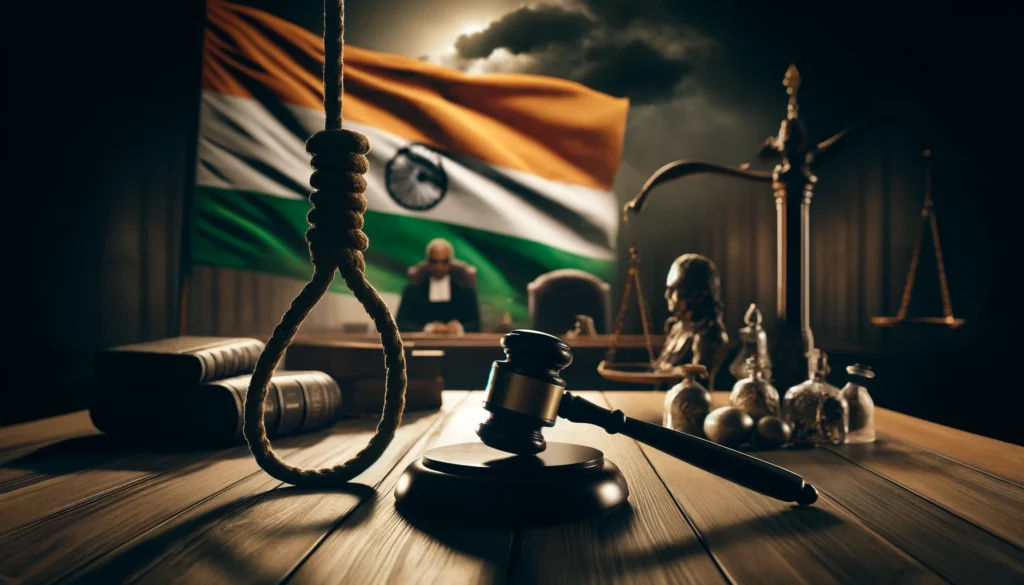Published On: 20th March, 2024
Citation: AIR 2002 SC 551
Coram: K Thomas , J. , S Phukan , J.
Court: Supreme Court of India
INTRODUCTION
The case of Madhya Pradesh Electricity Board vs Shail Kumar of tort law. In the case of “Strict Liability” of the electrical board in the event of electrocution caused by hidden theft committed by a stranger, an exemption of “Act of a Stranger” is possible or not? In the famous case, the court declared that the electricity board must pay compensation to the widow and son. The court also held that the electricity board could not escape from strict liability.
Strict liability is a legal doctrine that holds a person or entity liable for harm caused to another, even if the harm was not intentional and no negligence or fault can be proven. In other words, strict liability imposes liability on a party regardless of whether they took reasonable care or not. The focus is on the fact that the harm occurred rather than the fault of the party responsible for it.
In tort law, the act of a stranger refers to a situation where a third party, who is not directly involved in a particular transaction or relationship, causes harm to one of the parties involved. For example, if A and B are in a contractual relationship, and C, who is not a party to the contract, intentionally interferes with A’s performance of the contract, causing harm to B, then C can be held liable for the harm caused to B, even though he/she is not a party to the contract between A and B. This is because the interference by C disrupted the contractual relationship between A and B, leading to harm to B.
FACTS OF THE CASE
The facts of the case go like this: Jogendra Singh, a workman aged 37 on a rainy night was going back home from the factory riding his bicycle. The road was entirely covered by water due to the heavy rain. Nothing was visible on the road. A snapped live electric wire was lying on the road, which was used by Hari Gaikwad(3rd Respondent) who, without the electrical board’s knowledge, was secretly stealing energy for his own home. The deceased could not notice the wire and he came in contact with the same. He died instantaneously due to electrocution. An action was brought against the M.P.Electricity board. His widowed wife and young boy sought compensation in the amount of Rs. 6.39 lakhs, but the trial court only awarded them Rs. 4.34 lakhs.
Facts on behalf of the petitioner:
The Madhya Pradesh Electricity Board argued that they had disconnected the electricity supply to Shail Kumar’s house due to non-payment of bills and that they had followed the due process before taking such action. The Electricity Board contended that the High Court’s order was based on an incorrect interpretation of the Electricity Act and that it would set a wrong precedent if not challenged.
The Electricity Board argued that the disconnection of the electricity supply was necessary to ensure that the consumers paid their bills and that it was a reasonable action in line with the Electricity Act. The Board submitted that the restoration of electricity supply to Shail Kumar’s house would set a wrong precedent and would encourage other consumers to avoid paying their bills
Facts on behalf of the respondent:
Shail Kumar argued that the Electricity Board’s action of disconnecting the electricity supply without prior notice was a violation of natural justice and due process. He submitted that the Electricity Board’s decision was arbitrary and that he was not given an opportunity to present his case before the disconnection of the electricity supply. Shail Kumar also contended that the Electricity Board’s actions were in violation of his fundamental right to life and livelihood, as electricity is an essential commodity for daily living.
ARGUMENTS
ARGUMENTS ON BEHALF OF THE PETITIONER: MADHYA PRADESH ELECTRICITY BOARD
The petitioner (Madhya Pradesh Electricity Board) argued that the respondent (Shail Kumar) was liable for payment of electricity bills for a certain period during which he was not occupying his premises, as the electricity connection was still active and being used by someone else. The petitioner contended that it was the responsibility of the respondent to ensure that the electricity connection was disconnected when he vacated the premises. The petitioner further argued that the respondent was liable for payment of the electricity bills as he had failed to give notice of his vacation of the premises to the petitioner. The petitioner relied on Section 26 of the Electricity Supply Act, 1948, which provides that the consumer shall give notice to the supplier of any change in the occupation of the premises. The petitioner also argued that the respondent had not complied with the terms and conditions of the electricity supply agreement, which required him to give notice of his vacation from the premises and to pay any outstanding bills.
Overall, the petitioner’s argument was that the respondent was liable for payment of the electricity bills and that the High Court’s decision to absolve him of liability was erroneous.
ARGUMENTS ON BEHALF OF THE RESPONDENT: SHAIL KUMAR
The respondent (Shail Kumar) argued that he was not liable for payment of the electricity bills as he had vacated the premises and had no control over the use of electricity by any other person. The respondent contended that it was the responsibility of the petitioner (Madhya Pradesh Electricity Board) to ensure that the electricity connection was disconnected when he vacated the premises. The respondent further argued that he had given notice to the petitioner of his vacation from the premises and that the electricity connection should have been disconnected at that time. The respondent relied on Section 26 of the Electricity Supply Act, 1948, which provides that the consumer shall give notice to the supplier of any change in the occupation of the premises. The respondent also contended that he had complied with the terms and conditions of the electricity supply agreement and that the outstanding bills were not his responsibility as he had not used the electricity during the period in question. Overall, the respondent’s argument was that he was not liable for payment of the electricity bills and that the High Court’s decision to absolve him of liability was correct.
ISSUES
- Which liability does the electrical board have under the law of torts—strict liability or negligent liability?
- Can the defendant escape responsibility by claiming the exclusion of “Act of a Stranger”?
- Does the amount of compensation granted to match the losses incurred or not?
JUDGEMENT
In the case of Madhya Pradesh Electricity Board vs Shail Kumar, the Supreme Court held that the Electricity Board had a statutory duty to supply electricity in the area. If the energy so transmitted causes injury or death of a human being, who gets unknowingly trapped in it, the electricity supplier will be liable for the same. The defense of dangerous being ‘act of stranger’ can be an exception to strict liability was not allowed because the same could have been foreseen. The potentially dangerous nature of the electricity transmitted through the wires imposes a duty on the board and management to take all necessary safety measures to prevent any harm caused by the escape of such electricity. The wife and young son of the deceased sought Rs. 6.39 lakhs in compensation, but the trial court only awarded them Rs. 4.34 lakhs.
The final decisions which were passed by the council were:
1) The electricity board is liable because of negligence.
2) Even though it is an ‘act of a stranger’ the electricity board is liable to pay compensation because it is their duty to check.
3) The compensation amount does not match the losses incurred because a life is lost due to negligence.
ANALYSIS
My opinion is similar to the final decisions of the Supreme Court. The electricity board should cross-check if there is any wire left and cannot simply blame the third respondent saying that it is an ‘act of a stranger’ as it is their duty. Due to one negligence from the M.P.Electricity board, a life was lost which cannot be compensated by anything. The electricity board is clearly liable strictly even though it was not intentionally done. As the power transmitted in the wires has the potential to be dangerous and may even risk human life, the board and management have a stronger obligation to take all necessary measures to avoid any escape from such potentially harmful transmission wires. One exemption to the strict responsibility rule is acts of strangers. The Board is not eligible for the aforementioned exception since the appellant Board should have reasonably foreseen the act attributed to the stranger or, at the very least, prevented its effects.
REASONING
In the case of Madhya Pradesh Electricity Board v Shail Kumar (AIR 2002 SC 551), the Supreme Court of India held that the respondent (Shail Kumar) was not liable for payment of the electricity bills for the period during which he was not occupying his premises.
The court’s reasoning was based on the fact that the respondent had given notice to the petitioner (Madhya Pradesh Electricity Board) of his vacation from the premises and that it was the responsibility of the petitioner to disconnect the electricity connection at that time. The court further held that the petitioner had not discharged its duty to disconnect the connection, and therefore could not hold the respondent liable for the consumption of electricity by any other person. The court also noted that the respondent had complied with the terms and conditions of the electricity supply agreement, which required him to give notice of his vacation from the premises and to pay any outstanding bills. The court held that the outstanding bills were not the responsibility of the respondent as he had not used the electricity during the period in question.
RATIO
The Court in Madhya Pradesh Electricity Board v Shail Kumar referred to the principle of strict liability as laid down by Lord Blackburn in the 18th-century case of Rylands v. Fletcher. The principle states that if a person brings anything onto their land that is likely to cause harm if it escapes, they are responsible for any damage caused by its escape, even if they have taken all reasonable precautions to prevent harm. Essentially, the person must keep the item on their land at their own risk, and if it causes damage, they are held liable for all the natural consequences of its escape.
Justice K. Thomas referred to the principle of strict liability as stated in Rylands v. Fletcher. This principle holds that if a person brings anything onto their land that is likely to cause harm if it escapes, they are responsible for any damage caused by its escape, regardless of whether they took reasonable precautions to prevent harm. Justice Thomas explained that strict liability differs from negligence, where a person can avoid liability by taking reasonable precautions to prevent foreseeable harm.
In conclusion, the ratio of the case was that the consumer of electricity cannot be held liable for the consumption of electricity by any other person after he has given notice of his vacation of the premises and that it is the responsibility of the electricity supplier to disconnect the connection at that time. The case also affirmed the principle that the terms and conditions of the electricity supply agreement must be complied with by both the supplier and the consumer.
CONCLUSION
In the case of Madhya Pradesh Electricity Board vs Shail Kumar, we can conclude by saying any tort that involves ‘an act of a stranger’ even though there is no fault is strictly liable. The M.P.Electricity board is liable to repay the amount to the widowed wife and son. In this case, the court rejected the appeal of the defendant.
We need to agree to the fact that The exception does not apply in the current situation since the defendants might have reasonably been expected to anticipate the third party’s acts and the board could have avoided negative outcomes by exercising due diligence and reasonable care. The board and management have a greater responsibility to take all necessary precautions to prevent any escape from such potentially harmful transmission wires since the power transferred in the wires is potentially harmful and could also endanger human life.
Thus, it can be said that the verdict passed in the case of Madhya Pradesh Electricity Board vs Shail Kumar, is still considered a good judgment and is therefore still applicable to this day. This case is one of the leading cases on the subject of torts and has a major place in history.




